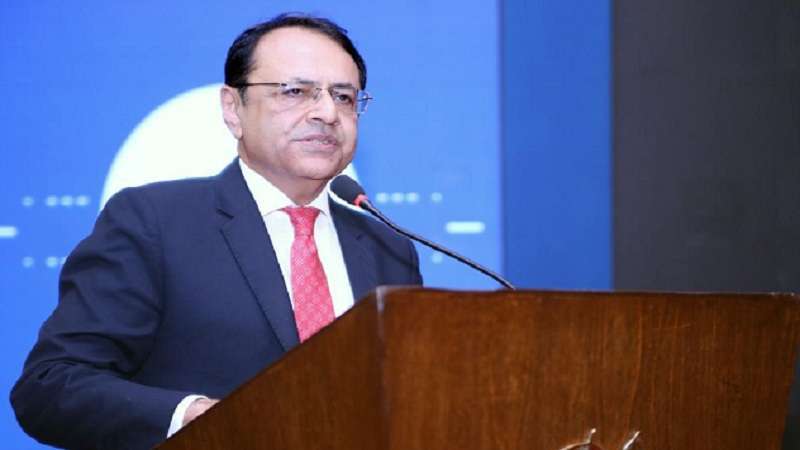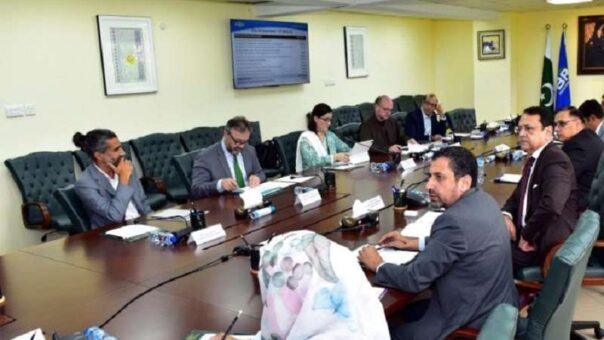Islamabad, July 24, 2023 – The Federal Board of Revenue (FBR) has officially declared the deadline for filing income tax returns for the Tax Year 2023.
(more…)Tag: Federal Board of Revenue
The Federal Board of Revenue is Pakistan’s apex tax agency, overseeing tax collection and policies. Pakistan Revenue is committed to providing timely updates on the Federal Board of Revenue to its readers.
-

Input and Output Tax Defined under Sales Tax Act 1990 for Facilitation of Taxpayers
Karachi, July 23, 2023 – The Federal Board of Revenue (FBR) has recently updated the Sales Tax Act, 1990, introducing clear definitions of input tax and output tax aimed at streamlining tax-related processes and providing greater clarity for taxpayers. The updated act, which covers changes up to June 30, 2023, is set to be applicable from July 1, 2023.
(more…) -

Sales Tax Reduced to 5% for Islamabad Restaurants
Islamabad, July 23, 2023 – In a move to promote digital transactions and bolster tax compliance, the Federal Board of Revenue (FBR) has announced a significant reduction in the sales tax rate for restaurants in Islamabad.
(more…) -

Karachi Tax Offices bid farewell to FBR Chairman Asim Ahmad
Karachi, July 23, 2023 – A heartwarming farewell dinner was organized in honor of Chairman Federal Board of Revenue (FBR), Asim Ahmad, by the Heads of all IRS (Inland Revenue Service) Field Formations of the Karachi region.
(more…) -

FBR Extends Lower Sales Tax Rate of 1% to Alternative Medicines
Karachi, July 22, 2023 – In a move to promote accessibility and affordability of alternative medicines, the Federal Board of Revenue (FBR) has extended the lower sales tax rate of 1 percent to the supply of alternative medicines/medicaments.
(more…) -

Sales Tax Rate Increased to 15% for Tier-1 Retailers of Textile Products
Karachi, July 22, 2023 – In a move aimed at generating additional revenue and streamlining the tax structure, the Federal Board of Revenue (FBR) has announced an enhancement in the sales tax rate for Tier-1 retailers of finished fabrics and articles of textile leather, among other materials.
(more…) -

Pakistan Takes Major Stride in Tax Reform: Unveils Draft Changes for Harmonization and Simplification
Islamabad, July 22, 2023 – In a significant move towards tax reform, Pakistan has unveiled draft changes to inland tax laws aimed at harmonization and simplification.
(more…) -

FBR Introduces Method for Payment of Section 7E Tax on Sale and Transfer of Property
Karachi, July 21, 2023 – The Federal Board of Revenue (FBR) has released the method for making tax payments on deemed income under Section 7E of the Income Tax Ordinance, 2001, specifically concerning the sale or transfer of immovable property.
(more…) -

FBR Imposes Sales Tax on Bulk Goods Sold Under Brand Names and Trademarks
Islamabad, July 21, 2023 – The Federal Board of Revenue (FBR) has taken the decision to apply sales tax on goods supplied under brand names and trademarks.
(more…) -

World Bank and FBR Review Pakistan Revenue Program, Acknowledge Significant Achievements
Islamabad, July 20, 2023 – The Country Director of the World Bank, Najy Benhassine, and the Chairman of the Federal Board of Revenue (FBR), Asim Ahmad, held a meeting at the FBR Headquarters to evaluate the progress of the Pakistan Raises Revenue (PRR) Program during the last financial year.
(more…)